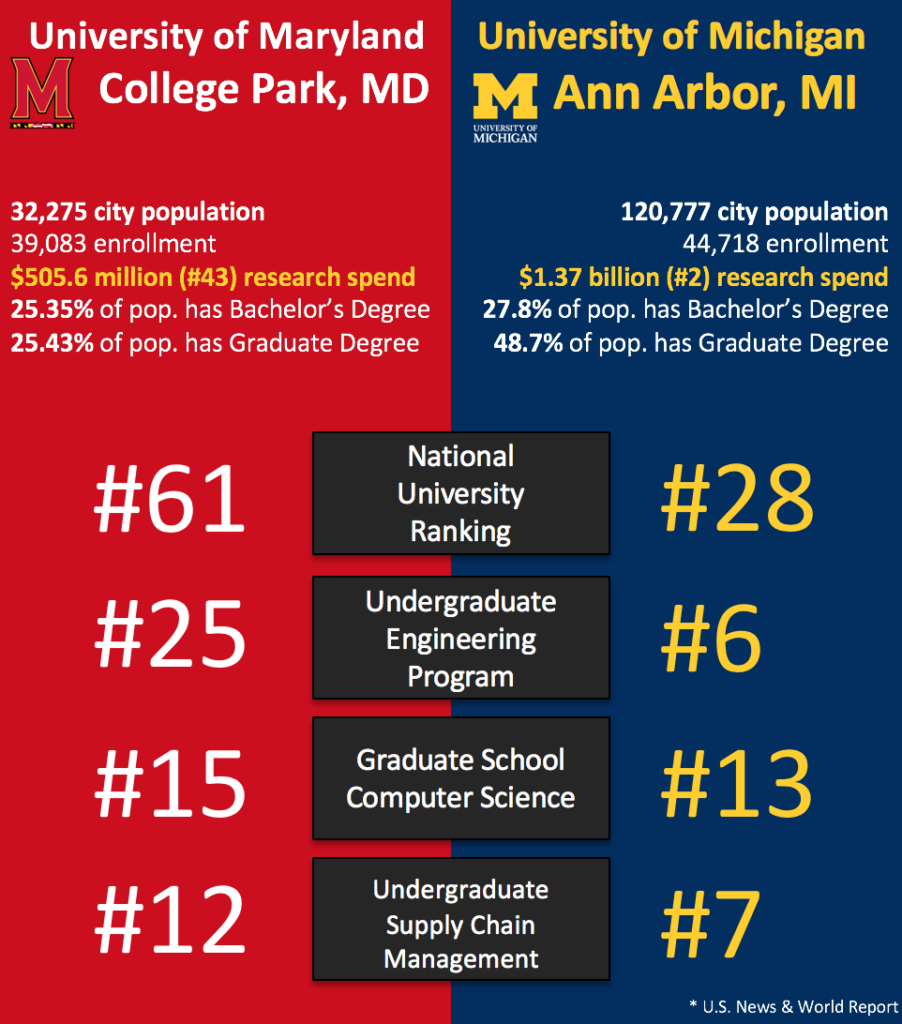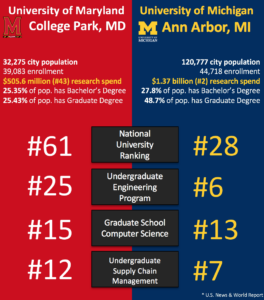
Our football blog series is back! Like last year, we’re using the football season as an impetus to ask ourselves how we stack up against other, similar regions. How does Ann Arbor compare to other college towns in the US?
It’s November. Time marches ahead as the Wolverines progress to game ten. So here’s your chance to take a break from reading and watching football analysis (do Jim Harbaugh’s eyebrows predict the future?), and settle in for some easy reading about College Park, Maryland, the town northeast of Washington DC that houses the University of Maryland.
It’s time we talked Research $$$. Many of the Big Ten schools describe themselves as “preeminent public research universities,” including Michigan and Maryland. Much of this funding often comes from the federal government, regardless of location. Total research expenditures by the University of Michigan are nearly $1.4 billion per year, with 70% of the University’s research spending in any given year provided by outside sources. The biggest share of that research funding comes from the federal government. When research funding from all sources is counted, U-M ranks No. 2 in the nation among all universities and No. 1 among public universities. To read more about Michigan’s Research and Technology Transfer – the Michigan Almanac (full version here, chapter specifically on research here) is published every year and contains a detailed breakdown of the source and destination of research funding.
And now, our usual contextual setting for the statistics you’re about to see comparing Ann Arbor to College Park:
- Located between Washington, D.C., and Baltimore, College Park is a very small town, though connected to our nation’s capital by the DC Metro (about 40 minutes from the White House). The campus in College Park is often considered a commuter school.
- With about 33,000 residents and 39,000 students, again their enrollment is greater than their city population (a common theme for towns with “college” in their name, it seems – population in the Census is usually calculated in a town by excluding college students – check out this article to go deep into the rabbit hole of how that can be problematic…)
- Proximity to Washington DC inevitably results in strong connections to the Federal Government. Most notably strong research partnerships with government agencies. Many of the faculty members have funding from federal agencies such as the National Science Foundation, the National Institutes of Health, NASA, the Department of Homeland Security, the National Institute of Standards and Technology, and the National Security Agency.


ICYMI – Here are links to this year’s series on our athletic (and economic) competition!
- Ann Arbor vs. Colorado Springs
- Ann Arbor vs. West Lafayette
- Ann Arbor vs. East Lansing
- Ann Arbor vs. Bloomington
- Ann Arbor vs. State College
- Ann Arbor vs. New Brunswick
- Ann Arbor vs. Minneapolis